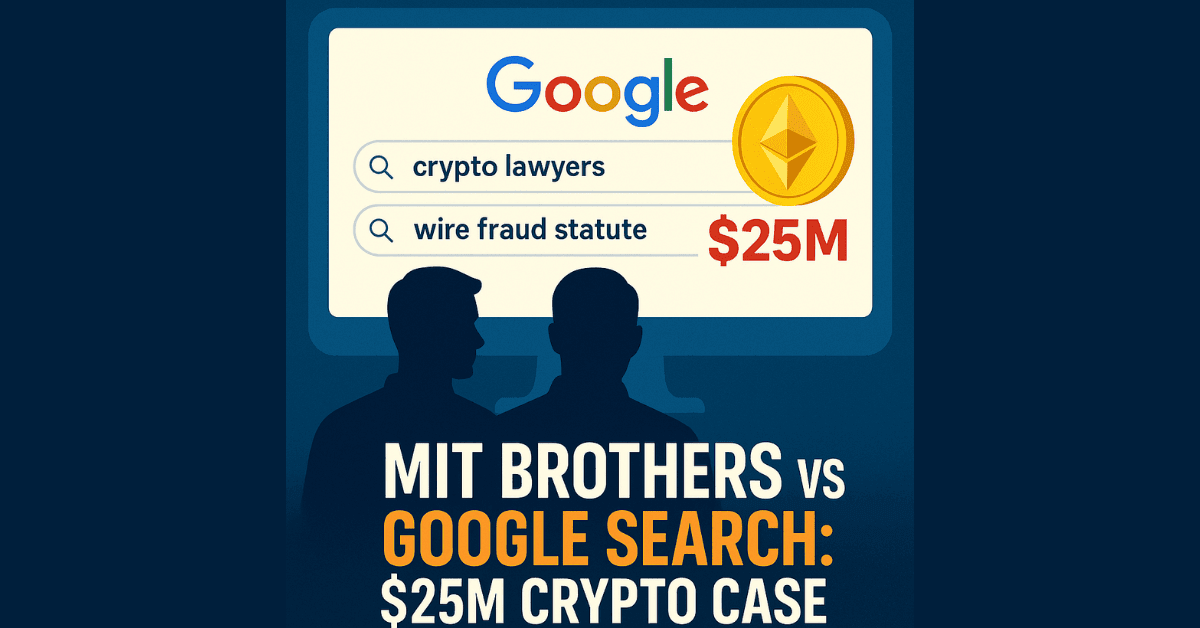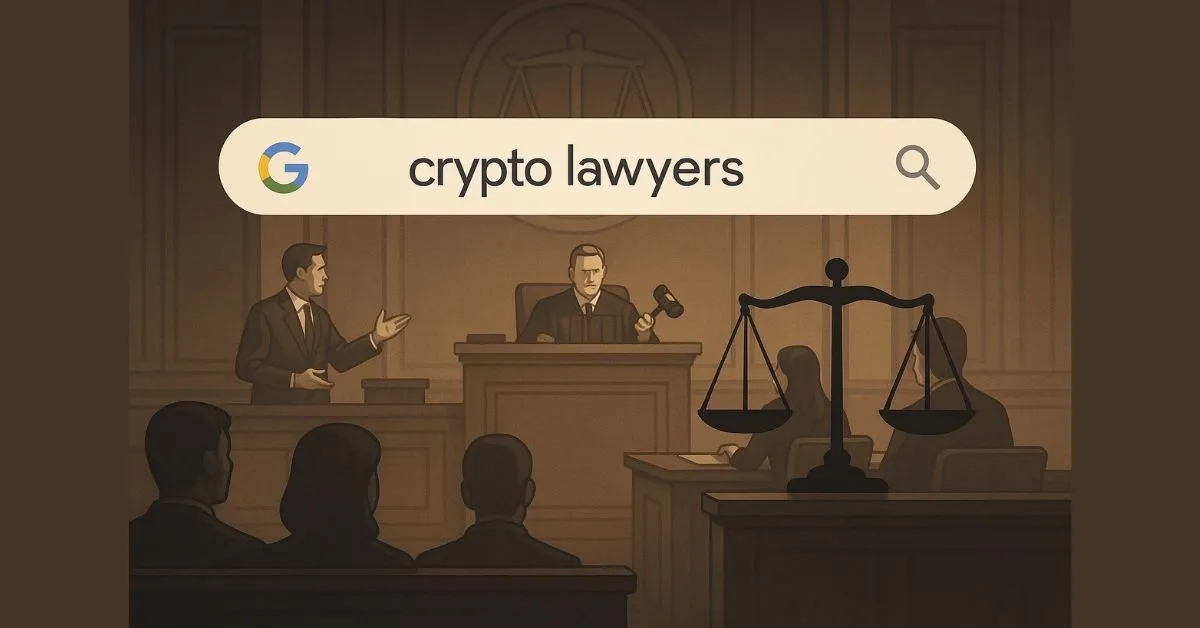
MIT Brothers Seek to Block Google Search in $25M Crypto Case
Dispute Over Google Search History
Anton and James Peraire-Bueno have filed a motion in Manhattan federal court to block prosecutors from using their Google search history as evidence. Prosecutors argue that queries such as “top crypto lawyers” and “wire fraud statute” demonstrate criminal intent. However, the defense insists these searches occurred after the alleged incident and were part of attorney consultations, thus protected by attorney-client privilege. If the argument is accepted, the case could set an important precedent on whether Google search history can be admitted in criminal proceedings.

The First MEV Exploit Case In The U.S
According to the indictment, in April 2023 the two brothers allegedly used their technical expertise to exploit Ethereum’s MEV-boost system, intercepting private transactions and redirecting $25 million in just 12 seconds. They were arrested in May 2024 and now face charges including conspiracy to commit wire fraud, money laundering, and wire fraud itself. If convicted, each could face up to 20 years in prison per count. Legal observers note this is the first time in the U.S. that an MEV exploit on Ethereum has been prosecuted as a criminal case, marking a new chapter in how authorities approach blockchain technology.
Legal Perspectives
Legal experts believe that using Google search history as evidence is complex and must be carefully considered. Attorney Alex Chandra of IGNOS Law Alliance explained that search data can only serve as hints and must be interpreted in context. He emphasized that searches made after the alleged conduct are not strong enough to prove criminal intent on their own. To rely on such data, prosecutors would need corroborating evidence of higher credibility to ensure fairness in the trial process.
Request To Exclude Additional Evidence
Beyond the dispute over search history, the defense team also requested the court exclude certain materials they argue are inflammatory and unreliable. This includes media articles with overly sensational language as well as a screenshot of a tweet by security researcher samczsun. According to the defense, these pieces of evidence cannot be independently verified and therefore should not be admitted in court.
Conclusion
The case involving the Peraire-Bueno brothers is not only about the alleged theft of $25 million but also raises a groundbreaking legal debate: can Google search history be used as valid evidence in blockchain-related criminal cases? The court’s final decision is expected to have significant implications for both the cryptocurrency industry and the way U.S. courts handle digital evidence in the future.
Disclaimer: The content above reflects the author’s personal views and does not represent any official position of Cobic News. The information provided is for informational purposes only and should not be considered as investment advice from Cobic News.